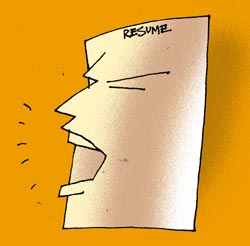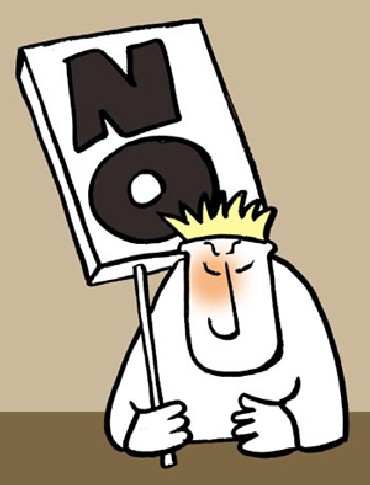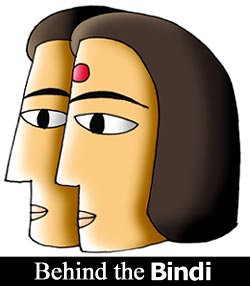 | « Back to article | Print this article |
7 things that could RUIN your CV
Neelam Gill Malhotra, Vice President, HR, CSC India tells you why it is important to focus on your achievements and strengths and part with irrelevant information on your CV. Read on
Going through a shortlisted bunch of resumes one Monday morning during the early stages of my career...this particular one will be etched in my memories for long.
A sheet of paper with a coloured border and screaming out resume (RESUME written on top in the maximum possible font size). It didn't end there.
This one had a photograph of the applicant which was probably one from his memoirs from a Goa holiday. All this for an application for an executive role!!! I felt like I was short listing candidates for a modelling assignment (sigh!)
Being an HR professional, it becomes a difficult task to screen through so many applications on a day in day out basis. Therefore it is always advised to stick to some basic fundamentals while building your resume in order to avoid the trash bin. Remember the golden adage....The first impression is the last impression.
Here are some key areas that they need to keep foremost in their mind while sharing their resumes for positions they deem suitable.
What blunders should you avoid while writing your CV? Share your advice with us below!
1. Being too subjective
A modular CV in the form of points is easier to understand, grasp and draw meanings.
The human resource department has to process innumerable number of applications in a day.
It is practically impossible to go through long paragraphs and CVs in the form of featured articles.
A resume is an impression not the definition of a professional's personality. It needs to be concise and to the point.
2. Irrelevant job experience or hobbies
Only experience relevant or related to the job that one is applying for is required and needs to be mentioned on your CV.
The same reasoning holds good for hobbies as well.
Illustration: Uttam Ghosh
3. Information about relatives, cousins
No organisation would remotely be concerned or interested in information related to the professional's family or relatives.
Although, there may be instances where the employer may ask you to furnish details about your immediate family at the interview stage, it is irrelevant to mention about one's uncles/aunts etc. in a professional resume; it might also create an adverse perception.
Illustration: Uttam Ghosh
4. Marital status
The first impression of a professional is not governed or judged by the fact whether s/he is married or not.
It is the relevance of your abilities and talent which should match the job profile not your marital status.
Illustration: Dominic Xavier
5. Religious views
Almost all organisations are neutral about their religious views and it would definitely not and should not make any difference if an applicant follows a particular religion.
6. Ethnic orientation
There is neither any discrimination nor any favouritism basis your ethnicity, after all how would it matter to the company whether you're Punjabi or Marathi.
All that matters is what you bring to the table at the end of the day.
Illustration: Uttam Ghosh
7. Mentioning the word 'Resume/CV' on top
It is clear that it's a resume and you need not shout it out loud.
Thus, it is important for the candidate to understand that a good resume is one which calls out loudly the key requirements of the profile in question.
However, this does not mean that one should always follow fixed guidelines when building one's profile. It is always appreciated to be innovative.
The presentation and the formatting of information on a resume is the candidate's choice, which obviously gives a wide window to experiment with various things. However, the information presented needs to be in-line with points mentioned.
Illustration: Dominic Xavier






